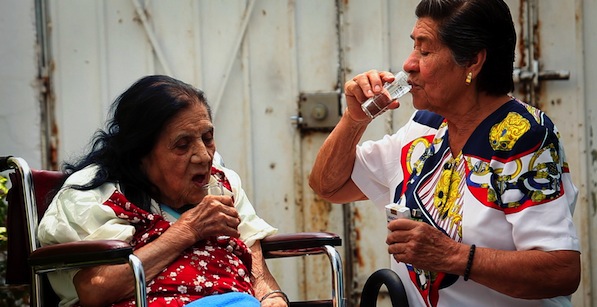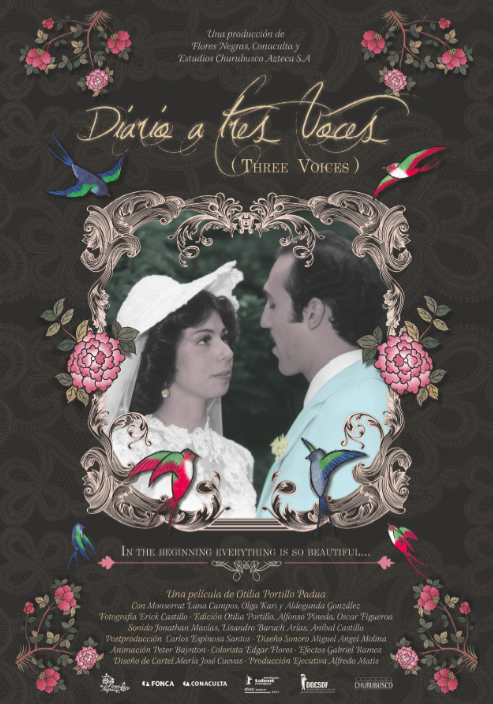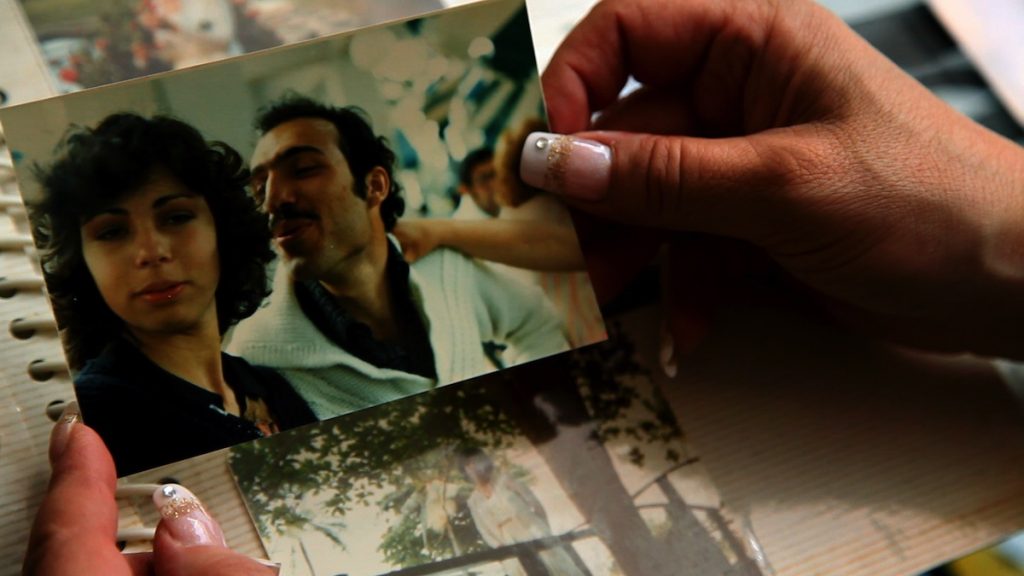Monserrat, age fifteen, dances the tango at her quinceanara and documents the thrills and despair of her first romance on Facebook and Twitter. Nora, fifty and divorced, visits a psychic healer to help her recover her lost beauty. Ninety-year-old Aldegunda cackles over tequila glasses and reminisces about the young suitor who tried to shoot her when she rejected his advances.
These are the three captivating protagonists of Diario a Tres Voces, a deceptively straightforward meditation on love and disappointment which will close out London MexFest this Sunday. Written, directed and produced by Mexico City-based architect and filmmaker Otilia Padua, the documentary premiered at Morelia last November, screened at SXSW in March, and will be released in the United States by 7th Art under the English title Three Voices. And this past spring, the film was also one of the most popular offerings at Ambulante, an eight-year old travelling festival that brings documentaries to some of Mexico’s most remote and troubled regions. Padua toured with Ambulante off and on for three months, and saw her film screened for free in almost every venue imaginable—on the beach, against walls built in by 16th-century conquistadores, on inflatable screens in town squares, in vineyards and fields. And almost everywhere she went, the seats were filled with people who looked like her characters.
“Most of the audiences were female,” thirty-two-year-old Padua told me over breakfast in Mexico City last month. “Women who work from home, who had never seen documentaries before. Women who were heavier, less well put together, and they who were surprised to see anyone who looked like them on screen, outside of on an exploitative reality show.”
Padua was touched to see that audiences could relate to the intimate, personal nature of the women’s stories as they grappled with lives that could never match up to the romance and passion promised them by love songs and telenovelas. That intimacy was intentional: Padua is an architect by trade, and shot with a keen eye for space and confinement. Monserrat, Nora and breakout star Aldegunda are interviewed almost exclusively indoors and at home. Everything is rose-tinted and private, inspired, in the words of Ambulante programmer Mara Fortes, “by Douglas Sirk’s Technicolor dramas of the forties and fifties.”
In cities where there were multiple screenings, several women came a second time, mothers, sisters, and daughters. And the men in attendance were few but vocal. In Torreon, Chihuahua—currently one of the bloodiest states in the Mexico—one man pushed his elderly mother to the outdoor screening in a wheelchair. In Acapulco, another man thanked her for her insight into the human heart. In Oaxaca, an elderly drunk man up to her weeping after the screening, mumbled something about the power of love, and then, still weeping, set out to help fold the chairs. (I was there that night, and found the experience of the film enhanced rather than harmed by the constant interruptions of bells, fireworks and a marching band that circled the block several times, loudly celebrating the birthday of the church’s patron saint.) Early on, a middle-aged woman next to me passed mosquito repellant down our row. Later, as Nora sang karaoke in tears with her friends on screen, she passed out tissues.
Padua did not initially intend to make a tearjerker. She was inspired by the discovery of a vinyl recording in some old family boxes—a once commonplace recording of advice for young women on how to enjoy happy marriages, and decided it was ripe for satire. “I wanted to use the album as a voiceover, and contrast it with the lives of several women. I wanted to cast dominatrices, ex-divas, table dancers… it was supposed to be a comedy.”
But Padua, then in her twenties, suffered a difficult breakup, and began rethinking her own parents’ divorce. “All film is somehow autobiographical, isn’t it? I think I had to get my own heart broken to understand what my mother went through. What’s that line from Persepolis? “I lived through everything, but heartbreak almost killed me.”
London will provide a homecoming of sorts—Padua was educated at Cambridge—but it was screening the film throughout Mexico that gave her the deepest sense of home. “Ambulante really is unlike any other film festival,” she explained, “and I think touring with the film helped me fall back in love with Mexico.
It’s easy to be a tourist in your country, you go to nice restaurants and hit the nice spots and that’s it. But when someone in an audience talks to you directly after watching your movie, and tells you in tears that he or she was touched by it, it’s like you are receiving a gift from strangers, and hopefully giving one in return.”









